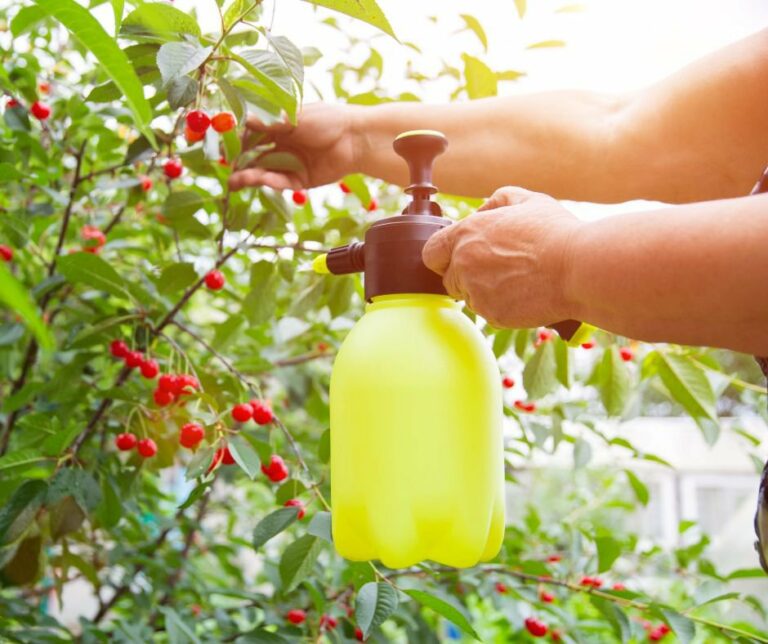Organic Pest Control. What Options do You Have?
Published: February 2, 2024

When it comes to dealing with pests in your garden or home, many people are turning to organic pest control methods as a safer and more environmentally friendly alternative. Organic pest control focuses on using natural solutions to manage pests without the use of harmful chemicals. Inorganic pest control including the use of near-organic pesticides and synthetic pesticides, are what many people are looking for alternative solutions to. In this article, All U Need Pest Control will explore some of the options available for organic pest control and how they can help you maintain a pest-free environment.
Beneficial Insects
One effective method of organic pest control is utilizing beneficial insects. These insects are natural predators that feed on common garden pests, helping to keep their populations in check. Ladybugs, lacewings, and praying mantises are just a few examples of beneficial insects that can be introduced into your garden. Many of these insects will reduce the number of harmful insects like caterpillars, imported cabbageworms, cucumber beetles, etc. By attracting and supporting these helpful creatures, you can create a balanced ecosystem that naturally controls pest populations.
Cultural Control Methods
Cultural control methods involve making changes to your gardening practices in order to prevent or manage pests. This approach focuses on creating conditions that are unfavorable for pests while promoting plant health. Some cultural control methods include:
- Crop rotation: Rotating crops each season helps disrupt the life cycles of pests and reduces the risk of infestations.
- Proper spacing: Providing adequate spacing between plants promotes good air circulation and reduces the risk of disease.
- Removing diseased plants: Promptly removing any infected or diseased plants prevents the spread of pests and diseases.
- Mulching: Applying mulch around plants helps suppress weed growth and creates a barrier against crawling insects.
Healthy Soils
Maintaining healthy soils is another essential aspect of organic pest control. Healthy soils support strong plant growth, making them more resistant to pests and diseases. Here are some tips for improving soil health:
- Adding organic matter: Incorporating compost or well-rotted manure into your soil improves its structure and fertility.
- Avoiding chemical fertilizers: Synthetic fertilizers can disrupt the natural balance of nutrients in the soil and harm beneficial organisms.
- Testing soil pH: Different plants thrive in different pH levels, so testing your soil's pH and adjusting it if necessary can help prevent nutrient deficiencies.
Companion Planting
Companion planting is a technique where certain plants are grown together to enhance each other's growth and repel pests. By strategically selecting companion plants, you can create a natural pest control system. For example, planting marigolds alongside vegetables can deter aphids, while planting basil near tomatoes can repel tomato hornworms. Researching which plants have beneficial relationships with each other is key to successful companion planting.
Organic Pesticides

In some cases, organic pesticides may be necessary to control pests that cannot be managed through other methods alone. Organic pesticides are derived from natural sources and break down more quickly in the environment than synthetic chemicals. Two common types of organic pesticides are neem oil and botanical-organic insecticides.
- Neem oil: Neem oil is extracted from the seeds of the neem tree and acts as an insect repellent, disrupting the feeding and reproductive cycles of many pests.
- Botanical-organic insecticides: These insecticides are made from plant extracts. They target specific pests while minimizing harm to beneficial insects.
It's important to note that even though organic pesticides are considered safer than synthetic ones, they should still be used judiciously and according to label instructions.
Organic Pest Control for Your Home
Many pest control companies, including All U Need Pest, now offer organic pest control treatment plans that will still give your home the same protection against pest problems, yet doesn’t utilize synthetic chemicals. We use products similar to the Ecovia line, that are made up of essential oils and plant extracts. These products when utilized properly and at the correct intervals, perform well in protecting your home.
Conclusion
Organic pest control offers a range of options for managing pests without relying on harmful chemicals. By utilizing beneficial insects, implementing cultural control methods, maintaining healthy soils, practicing companion planting, and using organic pesticides when necessary, you can create a balanced and pest-resistant environment. We hope these tips have helped you and for organic treatment options for your home, give All U Need Pest a call today!